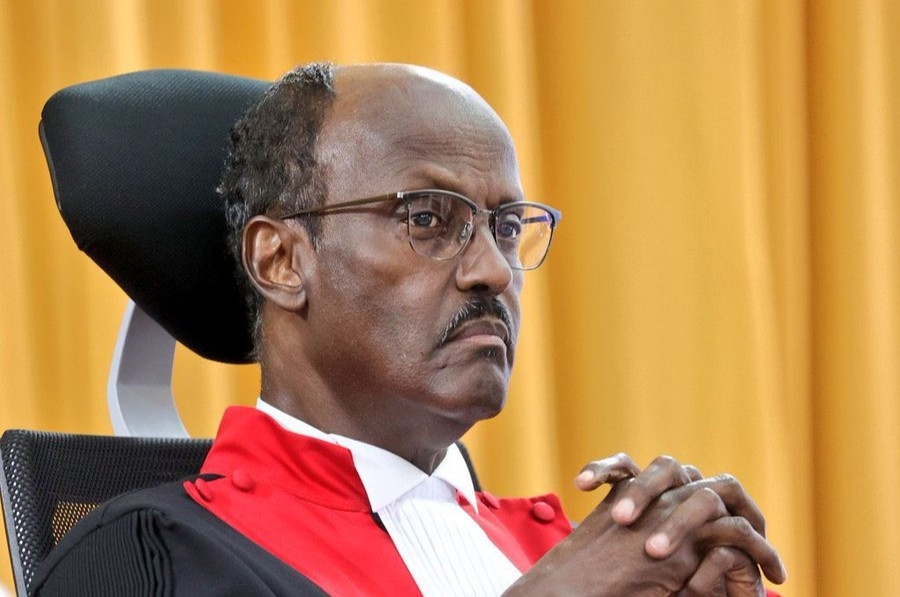Congratulations to Nairobi Governor Johnson Sakaja as he takes up the mantle as CEO of the Green City in the Sun.
His overwhelming victory points to the confidence that Nairobi residents have in him and his government. With the elections behind us, the new Nairobi administration has its work cut out. Residents are pregnant with expectations.
Over the years, the city has faced myriad challenges.
They include poor waste disposal, poor road networks, unreliable water and sewerage systems, congestion in the Central Business District, inadequate housing and inadequate healthcare systems, among others.
The immediate former administration tried to address some of these but many of the challenges remain unresolved.
Most of the new administration's pre-election pledges are aligned with the issues facing Nairobi. That is why most city residents are upbeat as they wait with bated breath for the new government to implement its campaign promises.
Everyone hopes that the new government will not follow in the footsteps of the former administrations, which promised a lot during the campaign period but failed to live up to their billing during the implementation phase.
The city has lost its former glory thanks to the reckless garbage disposal in the CBD and the city’s suburbs. Heaps of garbage have become a common feature on the city’s sidewalks and alleys. Litter is scattered on some of the streets.
Garbage disposal has been and remains a significant challenge to the Nairobi city administration, buoyed by the rapid increase in human population. Nairobi is home to more than 4.3 million people, according to the 2019 population census.
According to the World Bank report of 2021, Nairobi generates 2,400 tonnes of solid waste daily. Of this, only 45 per cent is recycled, reused or transformed into a form that can yield an economic or ecological benefit.
This is below the National Environmental Management Authority's recommended target of 80 per cent.
According to a report by Nema dated 2015, titled 'The National Solid Management Strategy', some of the factors facing waste management are problems associated with waste management systems, limited knowledge, attitude and practices, political will and technical and financial resources.
Aside from the waste management menace, most sidewalks in the CBD have been taken over by hawkers. This not only impedes smooth movement in the city but is also a security risk as criminals posing as traders take advantage of the situation to carry out their heinous activities.
Many of the street side rails, especially in the CBD have been vandalised. Most of the once beautiful landscapes of lush flowers and green trees are no more, thanks to wanton destruction by reckless city dwellers and contractors.
To create room for developments like road expansion and provision of other social amenities, many trees lining the roads have been felled. Little effort has been made to replace them once the projects are completed.
Of late, open sewers have become a common sight in the city with excrete littering the streets. It will be in the best interest of the county if Sakaja’s administration adopted the Nairobi Integrated Urban Development Master Plan.
Sakaja’s campaign manifesto mirrors the NIUPLAN. The manifesto is anchored on four pillars of order, dignity, hope and opportunity under the slogan, ‘Let’s Make Nairobi Work’.
It focuses on decentralising the city to ease service delivery, creating a working universal healthcare, enhancing education by providing healthy lunches to learners in public primary schools and provision of efficient mobility.
Every resident hopes that the new city administration will deliver as promised. The issue of waste management should be prioritised. So should the issue of decongesting the city, by coming up with a permanent solution. The issue has led to mass loss of revenue occasioned by frequent traffic snarl-ups.
The governor should also address the problem of water rationing and improve the sewerage and drainage systems. The county leadership should also build new markets to accommodate the ever-growing number of hawkers as promised.
This will not only create employment opportunities for the city's jobless youth but will also decongest the CBD and enhance its aesthetic view.
The administration should also facilitate businesses by eliminating bottlenecks, consolidating licences into one and getting rid of the cartels.
This is a clarion call to the new government.
Edited by Kiilu Damaris
“WATCH: The latest videos from the Star”















